Innovative Part Development
The versatility of the friction welding process, in the hands of our experienced manufacturing services staff, offers new approaches and timely end results for advanced research and development of part production.
Reach your part production goal through our prototype stage
-
Cost savings
You can save time and money, while also reducing the number of steps to reach your production goal, by taking advantage of MTI’s design experience in the prototype stage. We know what works and what doesn’t, based on our years of development experience and large portfolio of successfully welded production parts – parts that started as prototypes.
-
Material evaluations
Explore new designs and applications without workflow disruptions in your manufacturing facility. We recommend, design, and prototype unique and innovative solutions to the product development and improvement process that can expose additional savings and technical value to new and existing designs.
-
Custom design capabilities
Our on-staff experts include a Chief Metallurgist with decades of experience. This allows us to offer a full-range of detailed metallurgical testing and evaluations to confirm physical properties of the part and the weld zone.
-
Production evaluation
Explore new applications and markets without a large investment in capital equipment by having us optimize your development and production process, without the extensive, expensive, and time-consuming trial and error of going it alone – make the transition from prototype to full production a smooth one.
-
Manifold Tubing
• Creates narrow heat-affected zone
• 100% bond of contact area
• Resulting joints are of forged quality
• Stronger than parent material
• No weld splatter is created -
Finished Clutch Drum
• Dissimilar Materials - 4118 carburized and hardened gear to 1045 Drum
• Greatly increase design flexibility
• Choose appropriate materials and material size for each area of part
• Assembly is complete after welding -
Water Pump Shaft
• Dissimilar Materials – 420 Stainless steel to 1045 steel forging
• Greatly increase design flexibility
• Choose appropriate materials and material size for each area of part -
Stabilizer bars
• Dissimilar Materials – 4130 Steel tubing with 1018-1020 solid ends welded on each end
• Lightweight, but durable
• Save weight while maintaining torque and fatigue characteristics
-
Drive Shafts
• Forgings welded to steel tubing
• Lightweight, but durable
• Save weight while maintaining torque and fatigue characteristics -
Track Roller Bushings
• Steel backed, bronze laminate thrust washer to steel sleeve
• Reduce raw material and machining costs
• Replaced solid bronze casting
• Annual cost savings after taxes nearly doubled the purchase price of machinery required -
Lift Screw
• Roll threaded stock, saw cut to length and welded to screw machined ends
• Reduce raw material costs
• Reduction in machining costs -
Actuator for Reciprocating Saws
• Mild steel injection molded head (to size)
• Mild steel spindle tube to reduce weight - for directional changes (reciprocating)
• Less cost than a finished product made from a forging or casting
-
Oil Field Valve Body
• Various end fittings inertia welded to standard valve bodies
• Reduces inventory of many different valve body castings
• Replaced single casting -
Stern Drive Engine Tilt Mechanism
• Dissimilar Materials - 8650 Alloy Steel to 410 Stainless Steel
• Cost savings over former all-stainless forgings -
Bimetallic Exhaust Valves
• Dissimilar Materials - High temperature resistant valve to high wear resistant alloy stem
• Lower costs as bimetallic application -
Oil Pump Gear Blank
• Formerly forged entire blank from 8620H alloy steel and then machined
• Inventory requirements reduced
• Cost Savings in material (standard bar stock vs. forging)
• Cost Savings in cycle time - up to 247 inertia welded oil pump gear assemblies per hour
 MTI UK
MTI UK  FWT
FWT